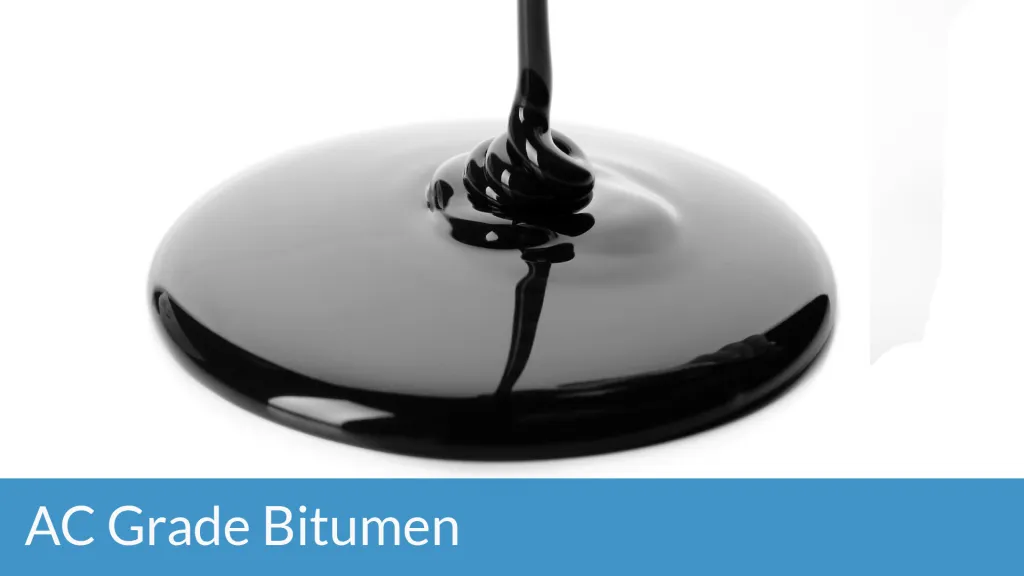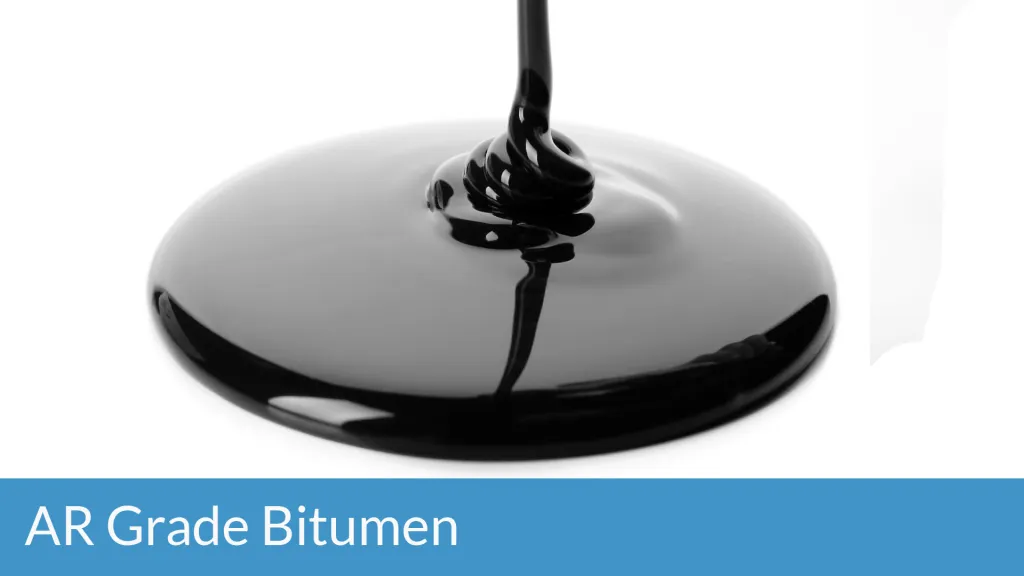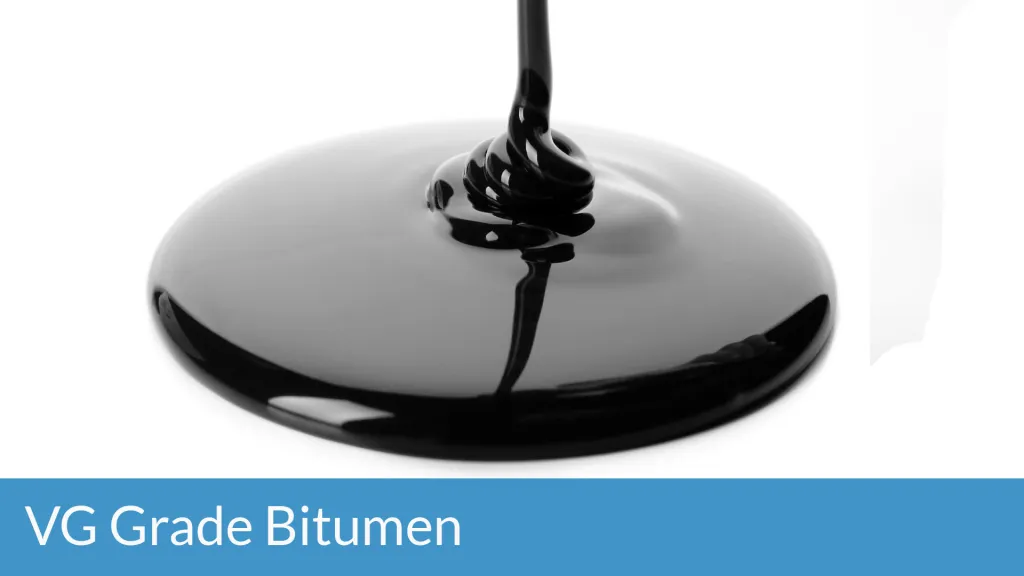Viscosity Grade Bitumen – Product Overview
Viscosity Grade Bitumen (VG Bitumen) is a petroleum-grade binder classified based on its viscosity at specific temperatures, rather than penetration value. Common VG grades include VG-10, VG-20, VG-30, and VG-40, each suited for different climatic conditions and traffic loads. Viscosity-based grading ensures consistent performance in hot mix asphalt (HMA), offering superior temperature susceptibility control and stability compared to older penetration-grade systems. VG Bitumen is widely used in road construction, airport runways, parking lots, and highway surfacing.
VG Bitumen provides enhanced resistance to rutting, cracking, and aging. For instance, VG-10 is ideal for cold climates and spraying applications, while VG-40 is best for heavy-traffic roads in hotter regions. These grades ensure better performance and easier quality control in the field due to their standardized viscosity properties. Viscosity Grade Bitumen is typically supplied in bulk, drums, or bitutainers, and conforms to ASTM D3381 / IS 73 standards.
Viscosity Grades Bitumen refers to a specific classification of bitumen or asphalt binders based on their viscosity or flow characteristics, encompassing VG (Viscosity Grade), AR (Aging Resistant), and AC (Asphalt Cement), offers a versatile range of bitumen binders tailored for diverse applications.
- VG bitumen provides precise viscosity specifications, ensuring optimal performance in road construction and paving projects.
- AR bitumen exhibits enhanced resistance against aging, maintaining its properties over time.
- AC bitumen, also known as Asphalt Cement, is commonly used as a binder in asphalt mixtures, delivering superior cohesion and durability. With their specific attributes, Viscosity Grades Bitumen, including VG, AR, and AC, are essential components for building robust and long-lasting infrastructure.
AC Grade Bitumen
AC Grade Bitumen, or Asphalt Cement, is a type of paving bitumen classified based on its viscosity at 60°C, denoted by grades such as AC-10, AC-20, AC-30, and AC-40. The “AC” stands for Asphalt Cement, and the number represents the viscosity in hundreds of poises. These grades are primarily used in hot mix asphalt (HMA) applications, where precise control over viscosity is essential for performance under varying traffic loads and climates. AC Bitumen is manufactured by refining crude oil and is known for its high durability, weather resistance, and excellent binding characteristics.
AC grades are widely used in highways, airfields, parking lots, and bridge decks, ensuring long-lasting pavement with reduced cracking, rutting, and moisture damage. For example, AC-10 is suited for cooler climates, while AC-30 or AC-40 is better for heavy traffic areas and hotter regions. AC Grade Bitumen is produced according to AASHTO M226 or ASTM D3381 standards and is commonly delivered in bulk or tanker trucks for large-scale infrastructure projects.
AR Grade Bitumen
AR Grade Bitumen (Asphalt Rated Bitumen) is classified based on its viscosity at 60°C and 135°C and is denoted by grades such as AR-1000, AR-2000, AR-4000, and AR-8000. The “AR” stands for Asphalt Viscosity Grading at 60°C, which closely simulates the bitumen’s behavior under actual pavement temperatures. This grading system helps engineers choose the right binder for specific climate conditions and traffic loads. AR Grade Bitumen is commonly used in hot mix asphalt (HMA) for roads, highways, and airport runways.
Each AR grade is designed for a particular temperature zone and application. For example, AR-1000 is suitable for colder regions with lighter traffic, while AR-8000 performs well under heavy loads in hot climates. The AR system provides better control over pavement performance, rutting resistance, and thermal cracking, making it a reliable choice for long-lasting, high-performance asphalt pavements. It complies with ASTM D3381 standards and is typically supplied in bulk tankers or drums for industrial use.
VG Grade Bitumen
VG Grade Bitumen (Viscosity Grade Bitumen) is a standardized asphalt binder categorized by its viscosity at 60°C. Unlike older grading systems like penetration grade, VG bitumen provides better consistency, especially under varying temperature and traffic conditions. Common grades include VG-10, VG-20, VG-30, and VG-40, each suited for different climatic zones and load-bearing requirements. VG Grade Bitumen is widely used in hot mix asphalt production, road surfacing, airport runways, and industrial paving projects.
Each VG grade serves specific engineering needs: VG-10 is ideal for spraying and cooler climates, VG-20 for moderate conditions, VG-30 for high-stress roads and warmer weather, and VG-40 for highways in very hot regions with heavy traffic. VG Bitumen ensures low temperature susceptibility, excellent adhesion to aggregates, and long-lasting resistance to cracking and rutting. It conforms to IS 73 specifications and is usually supplied in bulk, drums, or bitutainers.
Get a personalized quote for your specific requirements by writing to us at [email protected] or simply filling out the inquiry form here.
Have any questions or concerns, or need more information about Viscosity Grade Bitumen? Reach out to our team at [email protected]
You can contact our team for more detailed explanations. We are here to help you.
Our professional team offers you the most suitable products for your projects with quality and reliability.



